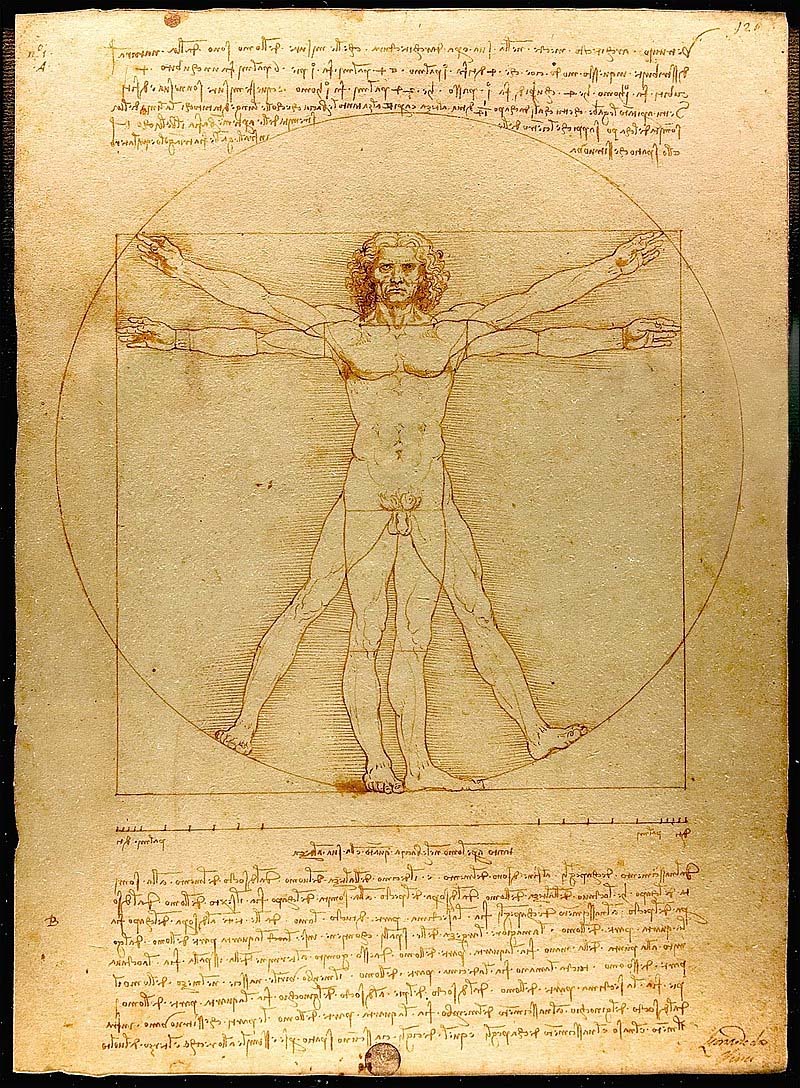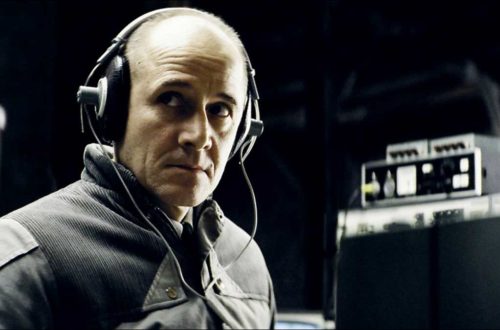AI and Human Evolution
I read Thomas Friedman’s Op-ed piece today about Artificial Intelligence this morning with interest in the New York Times today. His essay makes ambitious claims about how Artificial Intelligence will affect almost all aspects of how we live and work. Here is one typical quote from that article:
“You need to understand,” Craig warned me before he started his demo, “this is going to change everything about how we do everything. I think that it represents mankind’s greatest invention to date. It is qualitatively different — and it will be transformational.”
Thomas Friedman “Our New Promethean Moment”
I read the Wall Street Daily everyday and the follow the economics of Artificial Intelligence and the race between ChatGBT, Microsfoft, Google, and Meta to rush the best AI bots to market. It seems the capitalist money-chasers are looking for the “new big thing” as the social media gold rush is drying up… and AI appears to be the new cash-cow which you can get in on early, and ride the elevator up to wealth and renown, or so the pundits claim. AI will transform our political economies, understanding of science, and ability to improve the world, according to those who supposedly know. I read Bill Gates predict this yesterday:
“The development of AI is as fundamental as the creation of the microprocessor, the personal computer, the Internet, and the mobile phone. It will change the way people work, learn, travel, get health care, and communicate with each other. Entire industries will reorient around it. Businesses will distinguish themselves by how well they use it.”
Bill Gates “The Age of AI Has Begun”
AI will supposedly affect everyone at all levels. I read recently a pundit predict: “Artificial Intelligence is going to eradicate the middle. The smart people will become geniuses, and the dumb will be effectively useless. The rich will make more and take less time to do so; the poor will be trapped in low-wage, low-value, low-skill replaceable jobs that can’t be outsourced or automated.” AI will supposedly exacerbate present inequalities in the workforce, as previous technologies have done generally over the past three decades, or so the prognosticators predict. Unskilled labor has already been usurped by robots and other machines who can do the job easier, cheaper and faster, and so millions have lost their blue-collar jobs over the past few decades. It might get worse now with AI. Will semi-educated and mostly-repetitive workers from the pink and white-collar ranks also see themselves become unemployed as Artificial Intelligence does their jobs better and cheaper than they can? Will insurance claims adjusters and call center operators become obsolete?
Are all these larger ambitious claims about Artificial Intelligence true? Friedman and Gates are brilliant and informed thinkers, and I would give them my attention. Will AI be “revolutionary”? Will AI touch almost everything and everyone? Are we entering into a new era of workplace dynamics? Of human history?
I have no idea.
I suspect a bit “yes” and a bit “no.”
But I suspect that Artificial Intelligence will dominate the public imagination for the foreseeable future, and discussions around the topic will proliferate until people are sick of the subject – as has happened with social media. I suspect this is how we process change.
I have used ChatGBT and been both impressed and unimpressed. It offers the user a quick and comprehensive command of information from a whole spectrum of concerns. It can quickly and efficiently tell you about how to perform a dental crown procedure, or talk about “assortative mating” or explain what the “green light” symbolizes in the Great Gatsby; Bill Gates claimed ChatGBT passed the AP Biology Exam with the highest grade, although I also read that it passed the Bar Exam with a C+ grade (though that is much better than I would do). From my experience, I refer to ChatGBT as a “BS generator,” as in “bullshit generator.” It gives me “B- level” writing. The ideas are accurate enough, but there is no edge; the conclusions presented fail to interest me, and those more complicated valuations of right and wrong are absent from its prose. Those deeper questions which have no answer and rarely asked and never answered go unaddressed in the prose produced by the AI bots I have encountered.
But those intractable, unanswerable questions are the only ones which really interest me. Those are the very questions which “A level” work addresses. That is why I can AI the “BS generator,” at least at this time, as I have observed it.
But maybe it will improve. Maybe Artificial Intelligence will go deeper and engage interesting, more profound lines of thought. In a few years maybe AI will come up with better thinking than the most accomplished and popular writers of our time, like Thomas Friedman, come up with
Will they help advance us in those most complicated, intractable areas of human interest? Income inequality? Global health? Help deal with chronic diseases like cancer and malaria? Help with protection against antibiotic resistance bacteria? Clean and reusable energy? Cold fusion? Interstellar space flight? Smarter people than me claim that AI will help with this. They see a “brave new world” via AI, and make arguments to support their view. Who am I to disagree with them?
Will AI change everything? Touch everyone?
I don’t know.
Maybe. Maybe not.
But I don’t really care.
Maybe it is just that I am older. My brain is a bit sloggy. For sure it is less malleable to the new. I also spent next to no time worrying about profit ratios and future workplaces. I am approaching retirement; I care less and less about work. I am uninterested. I am tired.
But I will pay partial attention – I have a ChatGBT account, after all. This week I had my first student turn an essay in which I was sure was written by an AI bot.
But increasingly the world is passing me by.
I already passed on engaging the TikTok, Twitter, Instagram, and SnapChat revolutions on social media. I listened to pundits talk about how TIkTok is ruining the brains of young people with short-form videos, and shortening their already short attention spans, and I don’t know what they are talking about. I have never watched a TikTok video. I have no desire to start.
I wrote about my dislike of the idea of the Metaverse. But that idea seems to be fizzling out in the marketplace. If Mark Zuckerberg bet everything on the Metaverse, he seems to have missed his mark. Similar to AI, I am agnostic about a Metaverse I dimly understand, and I am only partially paying attention. I am skeptical.
Maybe it comes down to this: I am a conservative, increasingly. I look to the past more than to the future. Those culture landmarks and time-tested ideas which have survived hundreds or thousands of years of human history I wish to conserve. So I am a conservative.
Does that mean I support the “conservative” political party in my country? Do I support Republican Party candidates or issues? No. I don’t pay much attention to contemporary politics. I scan the newspapers and the daily Democrat-v-Republican sniping almost always bores me. (“How tedious, how predictable.” I groan; American politics is the “systemic organization of hatreds,” as the old chestnut of Henry Adams explained.) No, the “conservatism” that attracts me is the past and our human heritage of history, literature, and philosophy. I wish to preserve this. I am connected to the past by art and ideas, and I wish to conserve that human intelligence. Thomas Jefferson once wrote, “I like the dreams of the future better than the history of the past.” I am open to the beautiful dreams of the future, but I am more skeptical than Jefferson is about change, especially radical change; our ancestors provide us with certain hard-earned wisdom, and we ignore that at our peril, is how I see it. Those aggressive social engineers in politics who wish to abolish the past and make everything new will make things worse, not better, in my opinion. The lessons of history have borne me out so far (look at Mr. Jefferson and the French Revolution, for example, not to mention the Bolshevik one, among many others [Chinese, Cambodian, Cuban, Venezuelan]). So I am skeptical.
Thomas Friedman offers us a “Promethean moment” where Artificial Intelligence gives us the ability to reason at an exponentially higher level than before. We have greater agency to become smarter through AI, just like when Prometheus stole “fire” from the gods, gave it to mankind, and suffered for it. With his gift, we were able to reason and rise above the other animals – and even become “godlike” –

– which was supposedly the reason why the gods punished Prometheus for it. But if the gods were angered, we humans supposedly owe a huge debt to him.
Using this allusion from mythology, Friedman explains:
“We know the key Promethean eras of the last 600 years: the invention of the printing press, the scientific revolution, the agricultural revolution combined with the industrial revolution, the nuclear power revolution, personal computing and the internet and … now this moment.”
Thomas Friedman “Our New Promethean Moment”
He claims we are at the dawn of our Artificial Intelligence era. Hold on for the wild ride!
I will not dismiss AI and refuse to consider it. I will try to keep one eye open to how I might integrate AI to make my life better: to be able to make better decisions, see helpful trends, do quick effective research, etc. They say AI can perform repetitive tasks for you, making tedious labor unnecessary. Where Artificial Intelligence can help, I will use the help. We all could use such help.
But I really want to live with other people. I want to exercise twice per day. I want the outdoors and sun. I want my tennis matches and tennis buddies. There are like twenty famous old books I never had the time to read, and I want to wade into and digest them finally. I want to listen to Bach-Beethoven-Schubert–Chopin-Mendlesohn-Schumann-Brahms-Grieg-Thaichovsky-Rachmaninoff. I have been listening to Bach’s “Goldberg Variations” and Beethoven’s “Apassionada” with pleasure and profit for almost fifty years, and I want a few more decades of the same. I want to read and enjoy “Don Quixote” in the original Castilian. I want the exertion of my muscles, the sun and sweat in my eyes, and that pleasant sense of exhaustion and exhilaration which physical exertion brings. I want to travel. I want to think. I want to stay close to my body through early morning bike rides and late afternoon swims, earning my appetite at dinner and a good night’s sleep afterward. Retirement is my next step in life; I will be able to retreat from the concerns of earning a living. I hope to enjoy my old age. I should have the time to do all this and more. My time to innovate and shake-the-trees is over. I don’t want to reinvent myself. I am too old; I am too cautious. For better and for worse, I am who I am.
In that context I am not much interested in Twitter, TikTok, Bard, or ChatGBT. I am not interested in working for money, if I can avoid it; my time is more valuable than that, now that I begin to discern the end of my days. This much is clear: I don’t want to spend tons of time sitting down in front of a computer stressed about work. Keep it simple!
I would like to think I will live in the footsteps of Seneca the Younger, William Shakespeare, Michel de Montaigne, Leo Tolstoy, Victor Frankl, John Steinbeck, Christopher Hitchens, and so many others I admire who came before me. That is where my imagination and thoughts have been all my adult life. The always interesting D.H. Lawrence wrote, “Eat and carouse with Bacchus, or munch dry bread with Jesus, but don’t sit down without one of the gods.” Amen to that, I say. I am less interested in staring endlessly at computer screens and chasing digital dreams. I recognize that is where the money is nowadays, but there are other pursuits than money chasing, especially as you get older.
Thomas Friedman claims we have entered “our Promethean era ‘The Age of Acceleration, Amplification and Democratization.’” Maybe he is right. I don’t know. I’m nowhere near as smart or informed as are Friedman and his ilk. But still.
I return to this idea of where I want to invest my limited time and energy; I come back to what are our goals, personally and collectively. Speaking for myself, I am uninterested in superseding and excelling my current form or human understanding. I am comfortable as I am. I am too old to change, and uninterested in trying. Prometheus already visited us, and I am suspicious of another infusion of divine aid. I would wish not to fly too high towards the sun, as Icarus did. Instinctually I will seek not to exhibit hubris. I will keep a low profile and enjoy my humble intellectual pursuits in my quiet life. This will be more than enough to take up my remaining time. I will hardly be alone in living my last days out in this fashion. I follow a well-tread path, and I do so without fear.
It might be that Homo sapiens will experience huge gains in biotechnology research, aerospace engineering, and systems evolutions with the help of Artificial Intelligence. Good luck to them. I will be dead by then, hopefully. I am too used to the old to be able to bend and change myself to some radical change or transhumanism or whatever. Even if I could, I wouldn’t; I am already letting younger generations race ahead of me. Instead of trying to run to catch up with them, I will instead try to conserve what we were, and what I was, in the past (the age of print and literacy), while still being open to improvements and the new (the age of interconnected multimedia and machine learning). So I am conservative at heart, more or less, for better and for worse. I know who I am. I also know who I am not.
So if you come asking for me to join in the exciting Silicon Valley-led parade towards our technology-driven AI future, I would refuse. I will use the words of Edith Wharton’s Newland Archer at the conclusion of “The Age of Innocence” to make my apologies, “Tell them I am old-fashioned.”
I will stick to my daughters, wife, siblings, and friends. (Maybe one day I will have grandchildren?) I will stay close to my beloved books, classical music, and my personal writing. My body has been a good friend to me for so many years and usually performed so ably, and I will take care of it as much as I can as it begins to fail. Family and friends, travel and music, sun and sweat – vigorous exercise, good food, social connection – enjoy the good days, endure the bad ones – until I die. I will try to live out my days as have so many of my ancestors before me. It will be labor enough to achieve this!
In this context, Artificial Intelligence to me appears to be far from a central concern, at least as far as I can tell. And insofar as AI remains unessential, I will mostly ignore it. “Simplify, simplify, simplify!”
Or not?
Am I too dull and blind to see the imminent tsunami moving straight towards me? Will Artificial Intelligence change “everything”? Will I read these words in fifteen years and marvel at my willful ignorance? My inability to assimilate changing conditions of life and recognize future trends as they stare me in the face?
I have no idea.
But I suspect anyone who arrogantly claims to be sure about anything as up in the air as what the future will bring is trying to sell you something (ie. Thomas Friedman’s “Lexus and the Olive Tree,” and now seemingly, Prophet of AI). Nobody has a crystal ball. Even for the smartest of us, the future will surprise.
So I am skeptical.
Bill Gates writes, “I’m lucky to have been involved with the PC revolution and the Internet revolution. I’m just as excited about this moment. This new technology can help people everywhere improve their lives.”
We shall see.
MEMORIES OF THE THE PAST: I PREFER THEM

“What a piece of work is a man! how noble in reason!
how infinite in faculty! in form and moving how
express and admirable! in action how like an angel!
in apprehension how like a god! the beauty of the
world! the paragon of animals! And yet, to me,
what is this quintessence of dust?”




